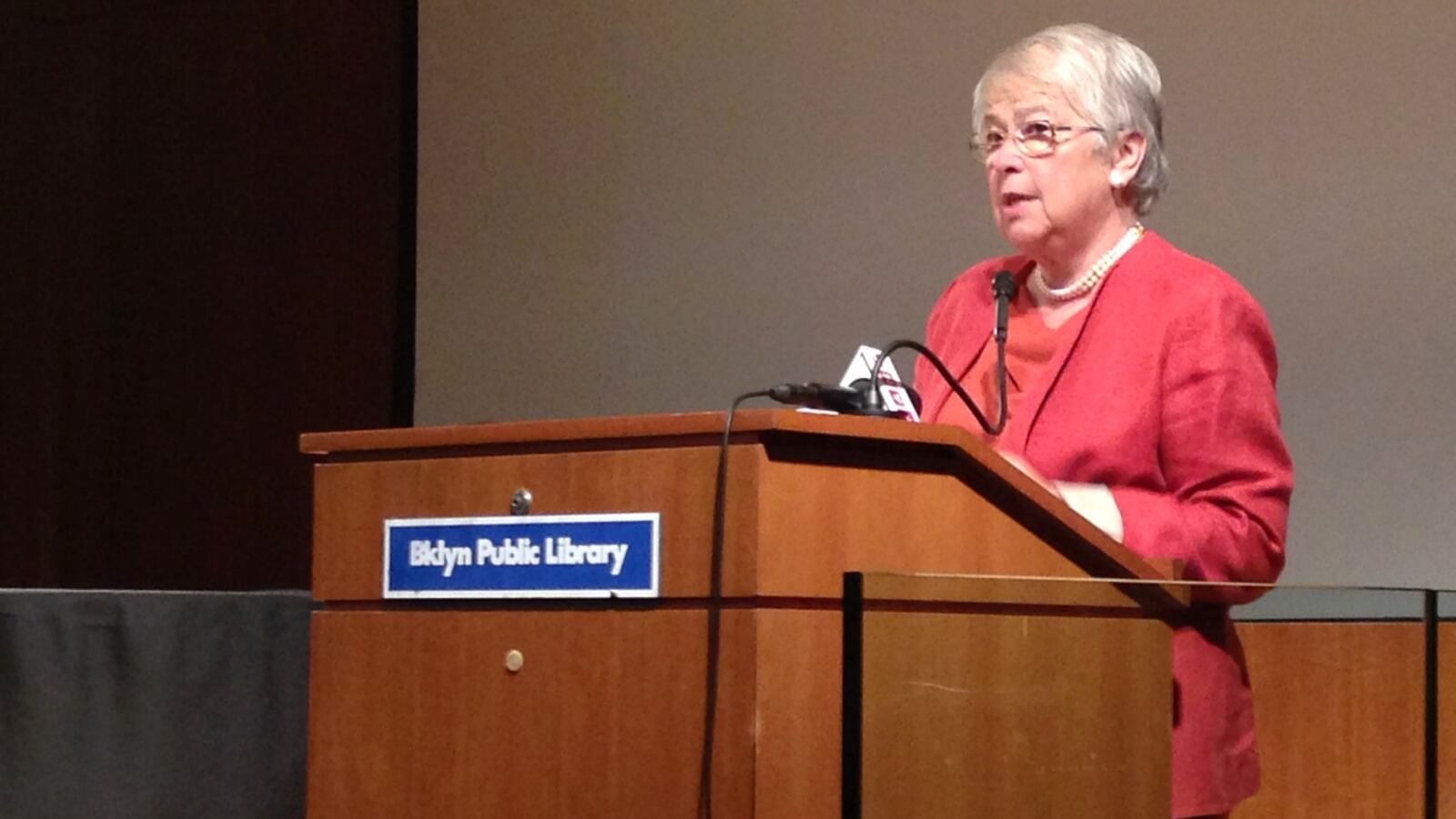Chancellor Carmen Fariña’s announcement of new district superintendents on Tuesday achieved of one of her big priorities: to return more influence and accountability to the those leaders charged with overseeing groups of principals and schools.
What she didn’t reveal was a plan for overhauling the city’s broader, complicated system of school support, which includes superintendents and school-support networks. But she did say that anyone looking for a full return to old systems in which district superintendents oversaw large staffs might be disappointed with her plans.
“We’re not going to go back to the old days where the school board had 35 people working,” Fariña said. “There is going to be structures within the system that’s going to help that.”
The question of how schools should best be supported has long vexed city officials. Under former Mayor Michael Bloomberg, superintendents lost their influence over school-level decisions, and principals now contract with support networks that provide help with school budgets, curriculum and staffing.
The way services get delivered to schools rarely has a direct impact on day-to-day operations, but how that system is set up can have implications because it can take money away from school budgets. Bloomberg prioritized efficiency and managed to decrease spending by 22 percent over his three terms in office, which he said set aside more for principals.Critics, including Mayor Bill de Blasio, have said the arrangement has made for a scattered accountability system and that the move away from geographically-organized districts has weakened community ties. Recommending changes to the system has fallen to Chief Strategy Officer Josh Wallack, who spent his first several months on a “listening tour” in speaking to principals and administrators to discuss the best way forward.
Fariña, who has been critical of networks in the past, didn’t write them off on Tuesday, the same day she named a new group of superintendents after requiring sitting leaders to re-apply for their jobs.
“Networks are very important in terms of assisting [schools] with doing their job,” Fariña said.
Most superintendents now have one person on staff to help field parent questions, Fariña noted, and she did not specify when superintendents would begin hiring additional people to help with their expanded roles.
Meanwhile, Fariña offered plenty of specifics for how superintendents should approach their management of individual schools.
School visits should always be announced, she said. Getting coffee with principals is great, though not as important as visiting classrooms. Taking notes on index cards is a good way to keep track of standout teachers and principals.
“You’re the eyes and ears of the chancellor and I mean that most sincerely,” Fariña told them.


